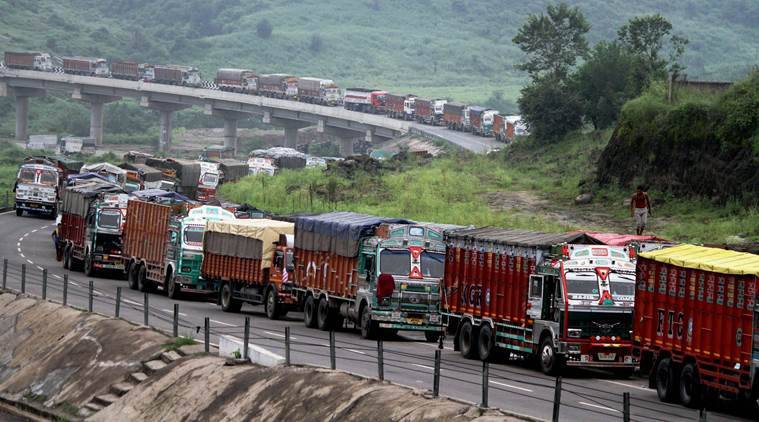

The nationwide lockdown, as a measure to contain the spread of Coronavirus in the country, had a great impact on the Indian transportation sector, with restricted movement complying with safety protocols. The Indian government allowed the movement of only essential items via road and water, up until March 29, when the Home Ministry decided to continue transportation of all essential and non-essential goods throughout the country. Backed by similar decision by eight major states in India, the expectation behind this move was to bring commercial transportation back to life.
Truck drivers in India are asking for your help. Please donate now: https://bit.ly/2wzJelT
However, it still seems like a distant dream, owing to disruption caused by the police by hindering truck movement within and between states, even after the Home Ministry’s directive has come into effect.
Even as the government is considering a mandate wherein the truck driver’s licence will serve as a pass or a permit to move trucks in the country, a very small percentage of trucks are actually plying on the roads. In fact, under normal circumstances, India has close to 1.2 million commercial trucks that have national road permits. However, currently, only 1,20,000 trucks are actually up and running, amounting to only 10% of the 1.2 million trucks. The remaining are either locked up by their owners, or are stranded at tolls and checkpoints of different national highways, unable to move.
From blatant refusal to allow trucks to pass through the checkpoints, to asking for hefty bribes, commercial vehicles in India still are literally at a standstill. In a statement, Pradeep Singal, Chairman, All India Transporters Welfare Association (AITWA), said, “Even as eight states, including Odisha, Tamil Nadu, Gujarat and West Bengal, among others, put out a notification that the movement of goods should not be disrupted, policemen in some states are stopping vehicles carrying essential goods in transit.”. He urges the law enforcement of the country to follow the directives and help in the seamless movement of cargo on trucks during this crisis.
The fear of being accosted by the police personnel has also made drivers, helpers and labourers steer clear from transportation. As a consequence, even essential service providers are facing a shortage of people for loading and unloading of cargo. Roadside dhabas too have shut shop, which has further added to the misery of drivers that are stuck at highways, and have made others even more vary of getting behind the wheel. The officials at AIWTA feel that if things continue at this pace, the nation might face a shortage of food and essentials due to restricted cargo movement.
The association has been in talks with the government, asking for insurance covers for truck drivers, helpers and labourers, since they are putting their lives at risk to help in the transportation of cargo throughout the country. AIWTA feels that, “An announcement requesting drivers to return with their trucks and serve the country should go from the PMO (Prime Minister’s Office). It will have a huge impact.”.
To keep the drivers from falling prey to starvation, the association has also suggested to the government to reopen dhabas and eateries on the highways at a distance of 200 km each.